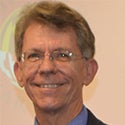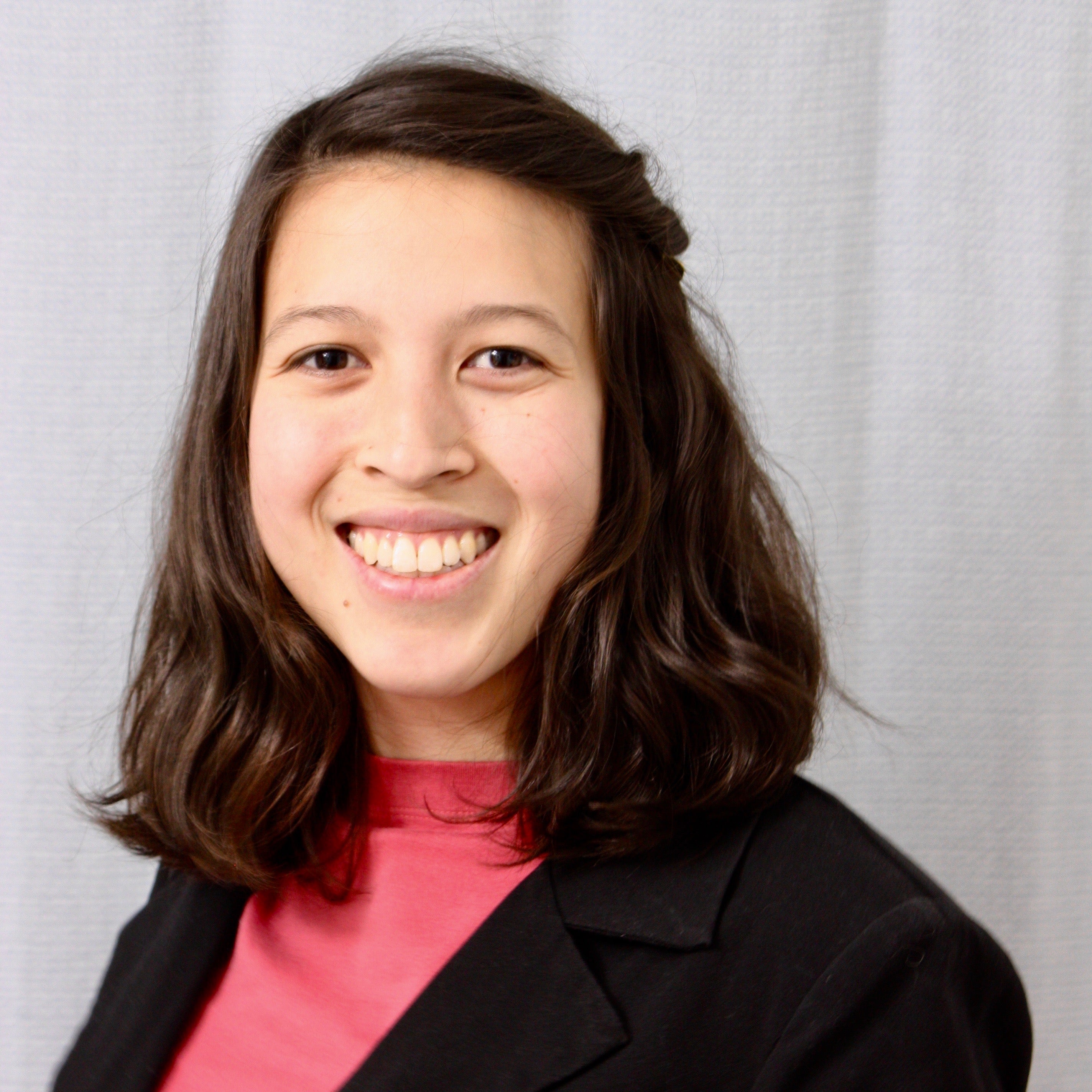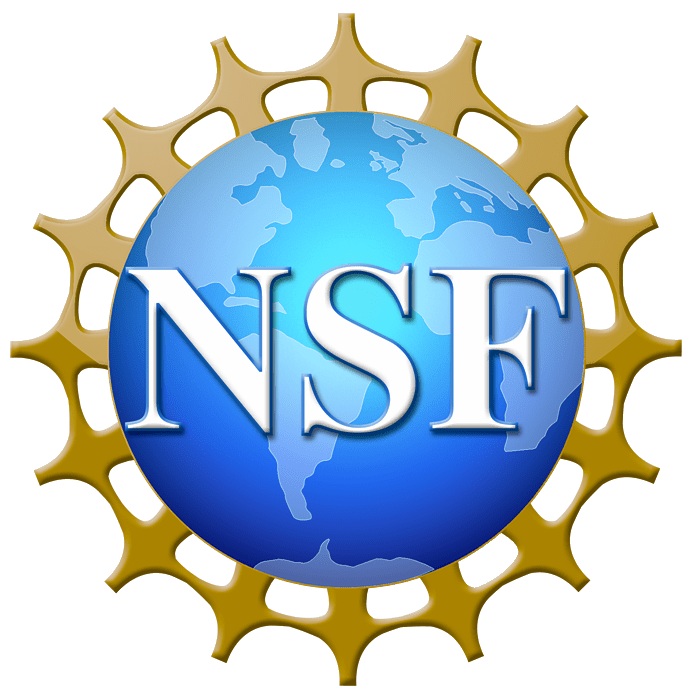Integrating Computational Thinking into Preservice Elementary Science Teaching
The goal of our study is to investigate how to improve the preparation that elementary teachers receive about computational thinking (CT) to increase both the quantity and quality of exposure for elementary-aged children that can then be built upon throughout their schooling.
To increase the number and diversity of students enrolled in secondary computer science courses (and thus in computer science careers), interest and basic understanding need to be developed in younger children when interests are being formed. The first step is to improve the preparation that elementary teachers receive about computational thinking (CT) to increase both the quantity and quality of exposure for elementary-aged children that can then be built upon throughout their schooling. This project’s overall goal, therefore, is to transform elementary school teacher practice by integrating CT strategically and significantly into science instruction for all young learners, thereby promoting a more numerous and more diverse citizenry, knowledgeable and interested in computing. The CT→PSTE project is designing, implementing, and testing pedagogical modules for developing CT in preservice teachers’ science methods pedagogical course. Further, an extracurricular Science Teaching CT Inquiry Group is being designed to enhance and broaden the level of understanding for both teacher interns’ and their mentor teachers’ understanding of CT, including how computer applications support the teaching of science and CT as a necessary science practice for all elementary-aged students. Instruction in how to convey to young learners the integral nature of CT for STEM career awareness and readiness is included throughout the curriculum innovation. This project is engaging in exploratory, basic research to provide empirical support in developing a set of resources (science methods experiences), tools (a framework for integrating CT in undergraduate science teacher education), and measures (assessments for CT understanding and CT-STEM career awareness).

Our Goals .
As Computational Thinking (CT) becomes more relevant in professional science, we situate our project as a response to the need to include CT into K-12 education. Specifically, our goal is to help preservice teachers develop the necessary skills to integrate CT into their science teaching.

Computational Thinking
CT is "the thought processes involved in formulating problems and their solutions so that the solutions are represented in a form that can be effectively carried out by an information-processing agent" such as a computer (Wing 2006). However, we also base our work on Weintrop et al.'s (2016) CT practices for integration of CT in science and math teaching.

Equity .
While CT is considered an essential skill in today's world, participation in STEM is not representative of the racial and gender distribution of our population. Especially in Computer Science, women and minorities are largely absent from academic and professional positions.
Check out our Guide to Running STIGCT
- An overview of STIGCT, a professional development for pre-service and in-service teachers
- Agendas and Presentations for each of the four STIGCT sessions: Programming, Data, Systems Thinking through Simulations, and Lesson Plan Sharing
- Detailed activity guides for all STIGCT activities including the rationale behind each activity and recommendations for using the activities in your own STIGCT!
Access our guide to a CT module for a Science Methods Course
- An overview of the CT module designed for pre-service Science Methods courses
- Detailed goals, resources, and activities for each session of the module
- Implementation tips to support integrating the module into a course
Publications
Journal Articles
McGinnis, J. R., Hestness, E., Mills, K., Ketelhut, D. J., Cabrera, L., & Jeong H. (2020). Preservice science teachers’ beliefs about computational thinking following a curricular module within an elementary science methods course. Contemporary Issues in Technology and Teacher Education, 20(1). Retrieved from https://citejournal.org/volume-20/issue-1-20/science/preservice-science-teachers-beliefs-about-computational-thinking-following-a-curricular-module-within-an-elementary-science-methods-course
Ketelhut, D. J., Mills, K., Hestness, E., Cabrera, L., Plane, J., & McGinnis, J. R. (2019). Teacher Change Following a Professional Development Experience in Integrating Computational Thinking into Elementary Science. Journal of Science Education and Technology, (Computational Thinking from a Disciplinary Perspective), 1–15. https://doi.org/10.1007/s10956-019-09798-4
Hestness, E., Jass Ketelhut, D., McGinnis, J.R. & Plane, J. (2018). Professional Knowledge Building within an Elementary Teacher Professional Development Experience on Computational Thinking in Science Education. Journal of Technology and Teacher Education, 26(3), 411-435. Waynesville, NC USA: Society for Information Technology & Teacher Education. Retrieved November 6, 2020 from https://www.learntechlib.org/primary/p/181431/.
Cabrera, L., Byrne, V., Ketelhut, D. J., Coenraad, M., Killen, H., & Plane, J. (2021). Measuring Teacher Self-Efficacy for Integrating Computational Thinking in Science (T-SelECTS). Educational Innovations and Emerging Technologies (EIET), 1(1), 3–14.
Published Conference Proceedings
Coenraad, M., Mills, K., Byrne, V.L., & Ketelhut, D.J. (2020) Supporting Teachers to Integrate Computational Thinking Equitably. In Proceedings of Research on Equity and Sustained Participation in Engineering, Computing, and Technology (RESPECT 2020), Portland, Oregon, USA: IEEE.
Killen, H., Coenraad, M., Byrne, V., Cabrera, L., Ketelhut, D.J. (2020) Reimagining computational thinking professional development: Benefits of a community of practice model. In Proceedings of the International Conference of the Learning Sciences (ICLS 2020), Nashville, Tennessee, USA: ISLS.
Ketelhut, D. J., Hestness, E., Cabrera, L., Jeong, H., Plane, J., & McGinnis, J. R. (2019). Examining the Role of Mentor Teacher Support in a Professional Learning Experience for Preservice Teachers on Integrating Computational Thinking into Elementary Science Education. In K. Graziano (Ed.), Proceedings of Society for Information Technology & Teacher Education International Conference (SITE) 2019 (pp. 2281–2285). Las Vegas, NV, United States: Association for the Advancement of Computing in Education (AACE). Retrieved from https://www.learntechlib.org/p/207966
Hestness, E., Ketelhut, D. J., McGinnis, J. R., Plane, J., Razler, B., Mills, K., Cabrera, L. & Gonzalez, E. (2018, March). Computational thinking professional development for elementary science educators: Examining the design process. Paper presented at the annual conference of the Society for Information Technology and Teacher Education (SITE). Washington, DC.
Cabrera, L., Coenraad, M., Byrne, V., Killen, H., & Ketelhut, D. J. (2021). Integrating Computational Thinking into Elementary Science Online. In de Vries, E., Hod, Y., & Ahn, J. (Eds.), Proceedings of the 15th International Conference of the Learning Sciences - ICLS 2021. (pp. 885-886). Bochum, Germany: International Society of the Learning Sciences.
Conference Presentations
Cabrera, L., Coenraad, M., Mills, K., McGinnis, J. R. & Ketelhut, D. (2020, Apr 17 - 21) Preservice Teachers' Self-Efficacy and Computational Thinking: A Mixed-Methods Approach [Structured Poster Session]. AERA Annual Meeting San Francisco, CA http://tinyurl.com/yx9n56fr (Conference Canceled)
Killen, H., Mills, K., Cabrera, L., Coenraad, M., Ketelhut, D., McGinnis, J. R. & Plane, J. (2020, Apr 17 - 21) Computational Thinking (CT) in Elementary Education: A Framework to Develop a CT Language Road Map [Paper Session]. AERA Annual Meeting San Francisco, CA http://tinyurl.com/w5obmtr (Conference Canceled)
Killen, H., Coenraad, M., Cabrera, L., Mills, K., Ketelhut, D. J., Plane, J. “We’ll be Scratching all the time: Understanding the role of language in computational thinking training for elementary teachers. Poster to be presented at the 51st ACM Technical Symposium on Computer Science Education (SIGCSE ’20), Portland, Oregon, USA, March 11-14, 2020.
Mills, K., Coenraad, M., Cabrera, L., Killen, H., Ketelhut, D. & McGinnis, J. R. (2020, Apr 17 - 21) A Design-Based Research Approach to Integrating Computational Thinking Into Elementary Science Teacher Education [Roundtable Session]. AERA Annual Meeting San Francisco, CA http://tinyurl.com/r9bzxps (Conference Canceled)
Ketelhut, D. J., Cabrera, L., McGinnis, R. J., Plane, J., Coenraad, M., Killen, H., & Mills, K. M. (2019). Exploring the Integration of computational Thinking into Preservice Elementary Science Teacher Education. National Science Foundation STEM+C PI Meeting. http://stemcsummit.edc.org/slides/DianeJass.pdf
Cabrera, L., Jass Ketelhut, D., Hestness, E. E., Mills, K., & McGinnis, J. R. (2019). Effects of a Computational Thinking Module on Preservice Teachers’ Knowledge and Beliefs. Presented at a roundtable at the American Educational Research Association Conference (AERA). Toronto, ON.
Hestness, E. E., Mills, K. M., McGinnis, J. R., Ketelhut, D. J., Jeong, H., & Cabrera, L. (2019). Preservice Teachers’ Beliefs About CT Integration in Elementary Science Instruction. In NARST 92nd Annual International Conference. Baltimore, MD.
Cabrera, L., McGinnis, J. R., Ketelhut, D. J., Hestness, E. E., Mills, K. M., & Jeong, H. (2019). Preservice Teachers’ Changes in Self-Efficacy Regarding Computational Thinking. In NARST 92nd Annual International Conference. Baltimore, MD.
McGinnis, J. R., Ketelhut, D. J., Hestness, E. E., Mills, K. M., Jeong, H., & Cabrera, L. (2019). An Examination of Preservice Teachers’ Integration of Computational Thinking in Their Elementary School Lesson Plans. In NARST 92nd Annual International Conference. Baltimore, MD.
Hestness, E. & Mills, K. (2018, March). Integrating computational thinking into elementary science teacher education through citizen science. Poster presented at the 2018 Washington Symposium and Poster Session of the National Center for Science and Civic Engagement (NCSCE). Washington, DC.
Ketelhut, D. J., & Hestness, E. (2018, June). Exploring the integration of computational thinking into preservice elementary science teacher education. Poster presented at the National Science Foundation 2018 DRK-12 PI Meeting. Washington, DC.
Ketelhut, D. J., Hestness, E., Mills, K. Ylizarde, N.H., McGinnis, J. R., & Plane, J. (2018, April). Mentor teachers’ views on integrating computational thinking into elementary science following a professional development experience. Paper presented at the annual meeting of the American Educational Research Association (AERA). New York, NY.
McGinnis, J. R., Ketelhut, D. J., Hestness, E., Jeong, H., & Mills, K. (2018, March). Programmatic model building in undergraduate elementary science teacher education for computational thinking. Interactive poster session presented at the annual meeting of NARST: A Worldwide Organization for Improving Science Teaching and Learning through Research. Atlanta, GA.
Cabrera, L., Byrne, V., Killen, H., Coenraad, M., Ketelhut, D. J., & Plane, J. (2021). Facilitation as Assessment of Teacher’s Computational Thinking Knowledge during Lesson Co-Design. Presented at the American Educational Research Association Conference 2021.
Killen, H., Coenraad, M., Byrne, V., Cabrera, L., Ketelhut, D. J., & Plane, J. (2021). Benefits of Expanded Mentorship in a Community of Practice Model for Computational Thinking Professional Development. Presented at the American Educational Research Association Conference 2021.
Coenraad, M., Byrne, V., Ketelhut, D. J., Plane, J., Cabrera, L., Killen, H., & Mills, K. M. (2021). Designing the Science Teaching Computational Thinking Inquiry Group: Professional Development for CT-Integrated Elementary Science. Presented at the American Educational Research Association Conference 2021.
Killen, H., Coenraad, M., Cabrera, L., Byrne, V., & Ketelhut, D.J. (2021). Integrating Computational Thinking into Elementary Inquiry-Based Science Instruction: Affordances of a Community of Practice Model. Presented at the NARST 94th Annual International Conference.
Research Team

Dr. Diane Jass Ketelhut
Diane’s research focuses on both improving self-efficacy in science and computational thinking and on learning and engagement through scientific inquiry experiences within virtual environments.

Dr. James Randy McGinnis
As a professor of Science, Math and Technology Education, Dr. McGinnis' research focuses on Science Teacher Education, Climate Change Education, and Computational Thinking. In this project, he leads the research team in implementing our innovation in the elementary science methods course.

Dr. Jandelyn Plane
Jan Plane is a Principal Lecturer in the Computer Science Department, the Director of the Maryland Center for Women in Computing and the Associate Director of ACES. Because she has graduate degrees in both computer science and education, her interests center around curriculum, pedagogy and diversity in computing at all stages of the pipeline.

Lautaro Cabrera (LC)
LC has a background in psychology, design, and computer science. As a doctoral student, he focuses on the development of computational thinking mental models and assessment.

Merijke Coenraad .
Merijke is a doctoral candidate in the department of Teaching and Learning, Policy and Leadership. Her research focuses on the intersections of technology and equity and partnering with teachers to develop curriculum, tools, and learning environments. She is a former middle school teacher.

Heather Killen
Heather has a background in biology and STEM learning. As a doctoral student, she focuses on STEM learning in out-of-school environments with a special interest in adult STEM learning and program assessment.
What our Teachers Say
"I've really enjoyed this experience. I think it has really helped me grow as a professional. I've got some great experiences out of it. Met some great people. So I've greatly enjoyed it. I value the time that I've spent here."
- 4th Grade Teacher
"We were shown ways you could realistically incorporate Computational Thinking even without fancy 3D printer technology. But just on a lower level, like creating those types of simulations with lower budgets."
- Preservice 3rd Grade Teacher
Contact Us
Dr. Diane Jass Ketelhut
Prinicpal Investigator
djk@umd.edu

Icons by Eucalyp, Freepik from www.flaticon.com